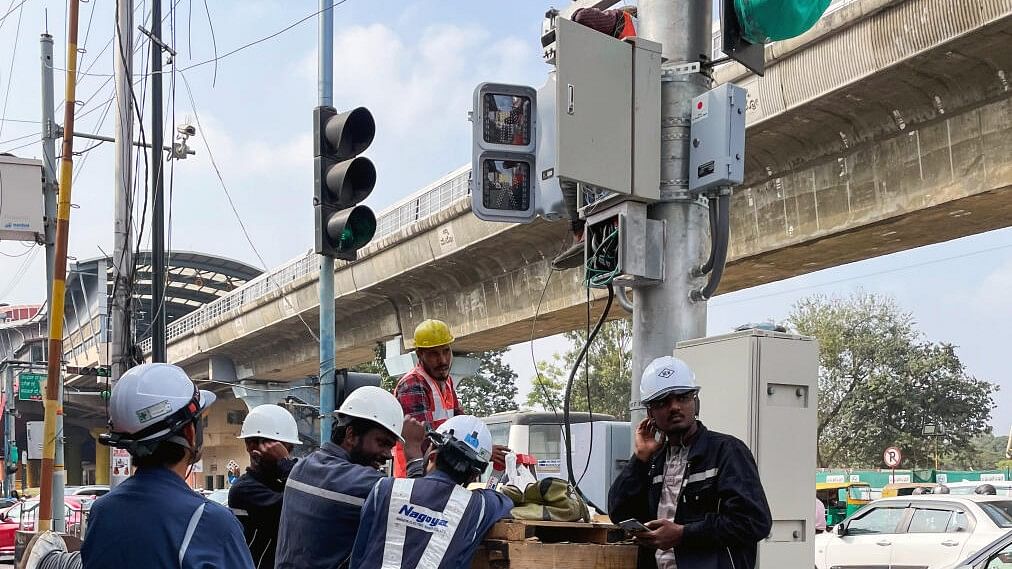
A smart signal system on MG Road in Bengaluru. The Directorate of Urban Land Transport (DULT) is installing smart signals at 28 junctions in the city with funds from the Japan International Cooperation Agency (JICA).
Credit: DH Photo/Pushkar V
Bengaluru Traffic Police (BTP) and the Indian Institute of Science (IISc) inked a Memorandum of Understanding (MoU) on Monday for a collaborative effort to develop a data-centric strategy to address traffic congestion, enhance road safety, and tackle mobility challenges in the city.
Under the collaboration, researchers from IISc’s Centre for Infrastructure, Sustainable Transportation and Urban Planning (CiSTUP) will harness sensor data from CCTV and Intelligent Traffic Management System (ITMS) cameras, along with other sources. This data will be fed into an artificial intelligence-driven model designed to predict congestion along the city's traffic corridors.
“We are trying to make a map of all the cameras to obtain different types of data and analyse congestion along corridors and not just junctions in the city,” Professor Vijay Kovvali, Research Professor at CiSTUP, told DH.
“We have a base transportation model now and are trying to build a model based on how people travel in the city. But our first step is to understand the data at hand and identify what other sources of data we would need,” he further added.
While predicting outcomes is challenging due to the dynamic nature of city traffic, Professor Kovvali expects to come up with workable recommendations within the next year.
He said: “With time, we want to look at overall mobility and road safety and try out multiple thought processes to experiment with existing data. However, this is not a silver bullet situation, so we hope to build a continuous process and not just a one-time solution.”
Bengaluru generates nearly 30 petabytes of traffic data monthly, largely untapped, said MN Anucheth, Joint Commissioner of Police (Traffic). Regular insights derived from this data will be shared with traffic police, empowering them to implement effective interventions.
“They will use the data points that we share to formulate plans and policies to rectify accident blackspots, ease congestion and enable better road safety and traffic management in the city,” Anucheth stated.
The MoU also outlines provisions for IISc experts to provide training and capacity-building sessions for BTP officers.
Deccan Herald is on WhatsApp Channels | Join now for Breaking News & Editor's Picks